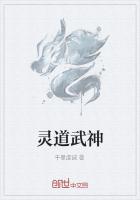confidence; "last year I brought home three roubles!" This answer was, at the moment, not altogether welcome, for I had just been discussing with a Russian fellow-traveller as to whether the peasantry can fairly be called industrious, and the boy's reply enabled my antagonist to score a point against me. "You hear that!" he said, triumphantly. "A Russian peasant goes all the way to Siberia and back for three roubles! Could you get an Englishman to work at that rate?" "Perhaps not," I replied, evasively, thinking at the same time that if a youth were sent several times from Land's End to John o' Groat's House, and obliged to make the greater part of the journey in carts or on foot, he would probably expect, by way of remuneration for the time and labour expended, rather more than seven and sixpence!
Very often the peasants find industrial occupations without leaving home, for various industries which do not require complicated machinery are practised in the villages by the peasants and their families. Wooden vessels, wrought iron, pottery, leather, rush-
matting, and numerous other articles are thus produced in enormous quantities. Occasionally we find not only a whole village, but even a whole district occupied almost exclusively with some one kind of manual industry. In the province of Vladimir, for example, a large group of villages live by Icon-painting; in one locality near Nizhni-Novgorod nineteen villages are occupied with the manufacture of axes; round about Pavlovo, in the same province, eighty villages produce almost nothing but cutlery; and in a locality called Ouloma, on the borders of Novgorod and Tver, no less than two hundred villages live by nail-making.
These domestic industries have long existed, and were formerly an abundant source of revenue--providing a certain compensation for the poverty of the soil. But at present they are in a very critical position. They belong to the primitive period of economic development, and that period in Russia, as I shall explain in a future chapter, is now rapidly drawing to a close. Formerly the Head of a Household bought the raw material, had it worked up at home, and sold with a reasonable profit the manufactured articles at the bazaars, as the local fairs are called, or perhaps at the great annual yarmarktof Nizhni-Novgorod. This primitive system is now rapidly becoming obsolete. Capital and wholesale enterprise have come into the field and are revolutionising the old methods of production and trade. Already whole groups of industrial villages have fallen under the power of middle-men, who advance money to the working households and fix the price of the products. Attempts are frequently made to break their power by voluntary co-operative associations, organised by the local authorities or benevolent landed proprietors of the neighbourhood--like the benevolent people in England who try to preserve the traditional cottage industries--
and some of the associations work very well; but the ultimate success of such "efforts to stem the current of capitalism" is extremely doubtful. At the same time, the periodical bazaars and yarmarki, at which producers and consumers transacted their affairs without mediation, are being replaced by permanent stores and by various classes of tradesmen--wholesale and retail.
This term is a corruption of the German word Jahrmarkt.
To the political economist of the rigidly orthodox school this important change may afford great satisfaction. According to his theories it is a gigantic step in the right direction, and must necessarily redound to the advantage of all parties concerned. The producer now receives a regular supply of raw material, and regularly disposes of the articles manufactured; and the time and trouble which he formerly devoted to wandering about in search of customers he can now employ more profitably in productive work.
The creation of a class between the producers and the consumers is an important step towards that division and specialisation of labour which is a necessary condition of industrial and commercial prosperity. The consumer no longer requires to go on a fixed day to some distant point, on the chance of finding there what he requires, but can always buy what he pleases in the permanent stores. Above all, the production is greatly increased in amount, and the price of manufactured goods is proportionally lessened.
All this seems clear enough in theory, and any one who values intellectual tranquillity will feel disposed to accept this view of the case without questioning its accuracy; but the unfortunate traveller who is obliged to use his eyes as well as his logical faculties may find some little difficulty in making the facts fit into the a priori formula. Far be it from me to question the wisdom of political economists, but I cannot refrain from remarking that of the three classes concerned--small producers, middle-men, and consumers--two fail to perceive and appreciate the benefits which have been conferred upon them. The small producers complain that on the new system they work more and gain less; and the consumers complain that the manufactured articles, if cheaper and more showy in appearance, are far inferior in quality. The middlemen, who are accused, rightly or wrongly, of taking for themselves the lion's share of the profits, alone seem satisfied with the new arrangement.
Interesting as this question undoubtedly is, it is not of permanent importance, because the present state of things is merely transitory. Though the peasants may continue for a time to work at home for the wholesale dealers, they cannot in the long run compete with the big factories and workshops, organised on the European model with steam-power and complicated machinery, which already exist in many provinces. Once a country has begun to move forward on the great highway of economic progress, there is no possibility of stopping halfway.















